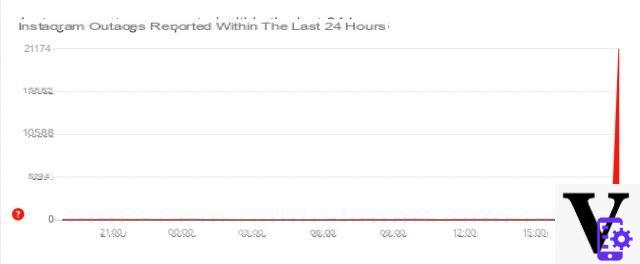
On the occasion of Safer Internet Day on February 8, ToothPic shares 6 tips for greater security on the web, especially for minors and young people.
The new role of the web in the lives of minors (and not only)
Since the advent of the pandemic the web has begun to play an increasingly important role in our lives. If before we used the internet mainly for entertainment, today even the youngest come together immersed in digitization also in the scholastic field. The e-learning platforms have now forcefully entered the daily life of minors, leading them to spend more and more time online. But as we all know, the network is full of pitfalls, and staying more connected means increase the chances of being a victim of cyberattacks e cyberbullying
A recent EU study shows that a good percentage of European children and adolescents experienced unpleasant experiences online during the pandemic. In Italy 20% of the young people interviewed had the perception of having been annoyed or upset on the net during the pandemic. Furthermore, 50% of Italian children and adolescents claimed to have been bullied more frequently.
“Online safety for young people is an increasingly topical issue. Children start connecting to the internet at an ever younger age, unaware of the risks they run. It is the duty of parents and teachers to provide children with the tools they need to use the Internet in a safer and more informed way ”he underlines Giulio Coluccia, CEO & Co-founder di ToothPic, an innovative Italian startup focused on computer security for authentication.
ToothPic's 6 tips for greater web security
1 - The importance of a "cyber" education
Informing minors and equipping them with the necessary skills for a safe and responsible use of the web is a fundamental prerequisite for being able to protect them. Greater sensitivity and awareness on the part of parents and educational institutions towards issues related to online safety - not only regarding the use of the network, but also the use of the devices from which it is accessed, and in particular of smartphones - would help children to understand what are the potential risks they may incur in terms of privacy violation, identity theft or sensitive data.
2 - Beware of emails
E-mails are one of the favorite means of those who want to get hold of confidential information and data. Students often find themselves opening e-mails sent by e-learning platforms with a request to install new updates. One click on a wrong e-mail is enough to give the green light to intrusions and external threats. In this regard, a good habit to put in place with your kids is to analyze together the sender address linked to the suspicious e-mail. The advice is to pay attention to the form of the text and the links contained within it. In this way it is possible to establish whether the email is to be considered reliable or not.
3 - Parental Control Applications
An effective measure that guarantees greater control and protection from any contact with malicious people is to install parental control applications. The latter, in fact, allow parents to monitor the activities that the user performs on his device. A great way to stay up to date with a notification about potential anomalies and exercise more control over network usage. For example, you can filter search results on Google with SafeSearch or limit users to using only one application on devices.
4 - Complex passwords for added security
While passwords are not the most secure authentication method for logging online, they are certainly the most used by users, both large and small. In this context, it is necessary to explain to the students that it is necessary to create passwords with complex alphanumeric combinations, not trivial and difficult to guess. Furthermore, it is always recommended not to use the same password for multiple services. It is also not recommended to choose passwords that have already been used in the past or that can be traced back to the user. Basically any reference to personal information such as dates of birth or names of relatives should be avoided.
5 - Multi-factor authentication schemes
Greater security on the web passes from the use of multi-factor authentication schemes, essential to increase the security level of your accounts. For this reason, it is always recommended to combine the knowledge factor (password) with the verification of another factor. The latter can be biometric (fingerprint) or possession (smartphone).
6 - Safer home networks
Cybercriminals often use home networks to carry out their attacks, as they are less secure than corporate or school networks. Precisely for this reason, especially in this particular period, it is good to increase the security level of our networks. The advice is to implement all the security measures allowed by your network device: from updating the router firmware or installing a firewall. We also recommend using a virtual private network. This intervenes between your devices and the Internet, and allows you to mask your IP address and hide your online activities.
On this topic Offer
 GAMURRY Gaming Headphones for PS4, Gaming Headset, Gaming Headphones ...
GAMURRY Gaming Headphones for PS4, Gaming Headset, Gaming Headphones ...
- ✔ 【Clear and realistic sound】 40mm large diaphragm drive unit, bring the sound more ...
- ✔ 【Special design】 High sensitivity noise canceling foldable omnidirectional microphone with a ...
- ✔ 【Comfortable, lightweight and breathable】 Soft pu leather + memory foam pad + lightweight earmuffs.Comfortable to wear, ...




























